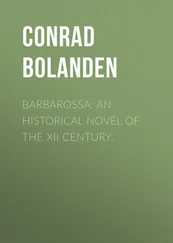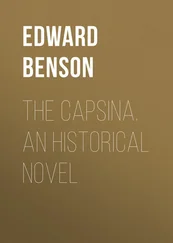While his mother lived he had visited her regularly, but for thirty years his mother had been lying in Priorsford churchyard, and he had not cared to keep in touch with the few old friends he had. For forty-five years he had lived in London, so there was almost nothing of Priorsford left in him—nothing, indeed, except the desire to see it again before he died.
They had been forty-five quite happy years for Peter Reid. Money-making was the thing he enjoyed most in this world. It took the place to him of wife and children and friends. He did not really care much for the things money could buy; he only cared to heap up gold, to pull down barns and build greater ones. Then suddenly one day he was warned that his soul would be required of him—that soul of his for which he had cared so little. After more than sixty years of health, he found his body failing him. In great irritation, but without alarm, he went to see a specialist, one Lauder, in Wimpole Street.
He supposed he would be made to take a holiday, and grudged the time that would be lost. He grudged, also, the doctor's fee.
"Well," he said, when the examination was over, "how long are you going to keep me from my work?"
The doctor looked at him thoughtfully. He was quite a young man, tall, fair-haired, and fresh-coloured, with a look about him of vigorous health that was heartening and must have been a great asset to him in his profession.
"I am going to advise you not to go back to work at all."
" What! " cried Peter Reid, getting very red, for he was not accustomed to being patient when people gave him unpalatable advice. Then something that he saw—was it pity?—in the doctor's face made him white and faint.
"You—you can't mean that I'm really ill?"
"You may live for years—with care."
"I shall get another opinion," said Peter Reid.
"Certainly—here, sit down." The doctor felt very sorry for this hard little business man whose world had fallen about his ears. Peter Reid sat down heavily on the chair the doctor gave him.
"I tell you, I don't feel ill—not to speak of. And I've no time to be ill. I have a deal on just now that I stand to make thousands out of—thousands, I tell you."
"I'm sorry," James Lauder said.
"Of course, I'll see another man, though it means throwing away more money. But"—his face fell—"they told me you were the best man for the heart. … Leave my work! The thing's ridiculous Patch me up and I'll go on till I drop. How long do you give me?"
"As I said, you may live for years; on the other hand, you may go very suddenly."
Peter Reid sat silent for a minute; then he broke out:
"Who am I to leave my money to? Tell me that."
He spoke as if the doctor were to blame for the sentence he had pronounced.
"Haven't you relations?"
"None."
"The hospitals are always glad of funds."
"I daresay, but they won't get them from me."
"Have you no great friends—no one you are interested in?"
"I've hundreds of acquaintances," said the rich man, "but no one has ever done anything for me for nothing—no one."
James Lauder looked at the hard-faced little man and allowed himself to wonder how far his patient had encouraged kindness.
A pause.
"I think I'll go home," said Peter Reid.
"The servant will call you a taxi. Where do you live?"
Peter Reid looked at the doctor as if he hardly understood.
"Live?" he said. "Oh, in Prince's Gate. But that isn't home. … I'm going to Scotland."
"Ah," said James Lauder, "now you're talking. What part of Scotland is 'home' to you?"
"A place they call Priorsford. I was born there."
"I know it. I've fished all round there. A fine countryside."
Interest lit for a moment the dull grey eyes of Peter Reid.
"I haven't fished," he said, "since I was a boy. Did you ever try the Caddon Burn? There are some fine pools in it. I once lost a big fellow in it and came over the hills a disappointed laddie. … I remember what a fine tea my mother had for me." He reached for his hat and gave a half-ashamed laugh.
"How one remembers things! Well, I'll go. What do you say the other man's name is? Yes—yes. Life's a short drag; it's hardly worth beginning. I wish, though, I'd never come near you, and I would have gone on happily till I dropped. But I won't leave my money to any charity, mind that!"
He walked towards the door and turned.
"I'll leave it to the first person who does something for me without expecting any return. … By the way, what do I owe you?"
And Peter Reid went away exceeding sorrowful, for he had great possessions.
Table of Contents
"It is the only set of the kind I ever met with in which you are neither led nor driven, but actually fall, and that imperceptibly into literary topics; and I attribute it to this, that in that house literature is not a treat for company upon invitation days, but is actually the daily bread of the family."—Written of Maria Edgeworth's home.
Pamela Reston stood in Bella Bathgate's parlour and surveyed it disconsolately.
It was papered in a trying shade of terra-cotta and the walls were embellished by enlarged photographs of the Bathgate family—decent, well-living people, but plain-headed to a degree. Linoleum covered the floor. A round table with a red-and-green cloth occupied the middle of the room, and two arm-chairs and six small chairs stood about stiffly like sentinels. Pamela had tried them all and found each one more unyielding than the next. The mantelshelf, painted to look like some uncommon kind of marble, supported two tall glass jars bright blue and adorned with white raised flowers, which contained bunches of dried grasses ("silver shekels" Miss Bathgate called them), rather dusty and tired-looking. A mahogany sideboard stood against one wall and was heavily laden with vases and photographs. Hard lace curtains tinted a deep cream shaded the bow-window.
"This is grim," said Pamela to herself. "Something must be done. First of all, I must get them to send me some rugs—they will cover this awful floor—and half a dozen cushions and some curtains and bits of embroidery and some table linen and sheets and things. Idiot that I was not to bring them with me! … And what could I do to the walls? I don't know how far one may go with landladies, but I hardly think one could ask them to repaper walls to each stray lodger's liking."
Miss Bathgate had not so far shown herself much inclined for conversation. She had met her lodger on the doorstep the night before, had uttered a few words of greeting, and had then confined herself to warning the man to watch the walls when he carried up the trunks, and to wondering aloud what anyone could want with so much luggage, and where in the world it was to find room. She had been asked to have dinner ready, and at eight o'clock Pamela had come down to the sitting-room to find a coarse cloth folded in two and spread on one-half of the round table. A knife, a fork, a spoon lay on the cloth, flanked on one side by an enormous cruet and on the other by four large spoons, laid crosswise, and a thick tumbler. An aspidistra in a pot completed the table decorations.
The dinner consisted of stewed steak, with turnip and carrots, and a large dish of potatoes, followed by a rice pudding made without eggs and a glass dish of prunes.
Pamela was determined to be pleased.
"How right it all is," she told herself—"so entirely in keeping. All so clean and—and sufficient. I am sure all the things we hang on ourselves and round ourselves to please and beautify are very clogging—this is life at its simplest," and she rang for coffee, which came in a breakfast-cup and was made of Somebody's essence and boiling water.
Pamela had gone to bed very early, there being absolutely nothing to sit up for; and the bed was as hard as the nether millstone. As she put her tired head on a cast-iron pillow covered by a cotton pillow-slip, and lay crushed under three pairs of hard blankets, topped by a patchwork quilt worked by Bella's mother and containing samples of the clothes of all the family—from the late Mrs. Bathgate's wedding-gown of puce-coloured cashmere to her youngest son's first pair of "breeks," the whole smelling strongly of naphtha from the kist where it had lain—regretful thoughts of other beds came to her. She felt she had not fully appreciated them—those warm, soft, embracing beds, with satin-smooth sheets and pillow-cases smelling of lavender and other sweet things, feather-light blankets, and rose-coloured eiderdowns.
Читать дальше












